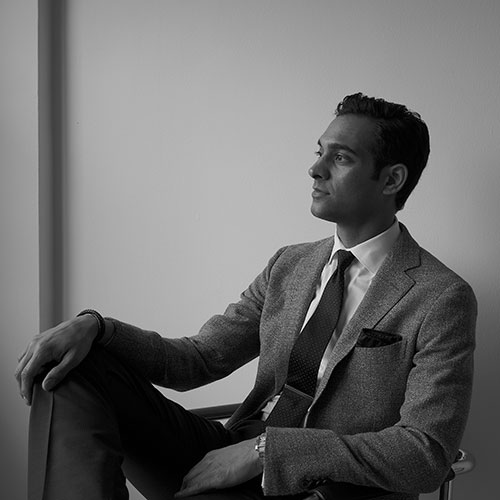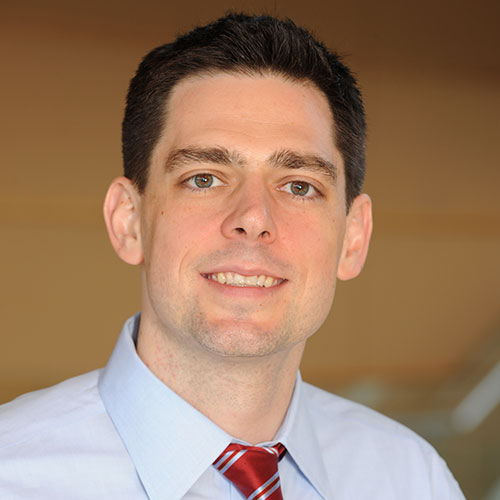Donald Chae, AM’00, PhD’03, a senior vice president of enterprise productivity at Northern Trust in Chicago, studied music history at UChicago after earning an undergraduate degree in music performance.
How did you get from music history to banking enterprises?
My first several years in graduate school were among the happiest of my life, but at some point I started to question if a life in academia was actually what I wanted to do. My goal was ultimately to move into arts administration. So I said, how can I get a little bit of business experience to complement my background in the arts?
There are a couple of business firms that recruit PhDs; the two best known are McKinsey & Company and the Boston Consulting Group. BCG gave me an offer, and I was really impressed with the people there. I found, to my amazement, that BCG had a spirit of inquiry and curiosity, of thinking outside of the box. I thought it had a real kinship with the University of Chicago. I stayed there four years and did end up with Chicago Symphony Orchestra for a while, then went back to BCG, and now have been at Northern Trust for four years.
What exactly does enterprise productivity involve?
We have a number of strategic initiatives under way with teams of dozens, scores, or hundreds. My role among this portfolio of initiatives is to prioritize the ones we need to do immediately, orchestrate the dependencies among them, and then allocate resources. We don’t so much define the strategy as execute the function of these mini-strategic initiatives.
Does studying the humanities give you an advantage over colleagues with a straight business education?
To be successful in the middle and higher echelons of the world of business and the world of management, one has to be a very clear and logical thinker and communicator. No one discipline has a monopoly on the ability to develop people who can think in such a way. The humanities is one route to that, and it’s certainly an enjoyable one.
One of my favorite colleagues at Boston Consulting Group was a math PhD, and for years we had this running debate about, do you bring something special as a PhD, or is doing the job just a matter of a set of skills? I personally tended to come down more on the side of thinking that it was an interchangeable set of thinking skills and capabilities that weren’t necessarily differentiated by having been in the humanities versus a native business approach. But my good friend thought differently. But of course PhDs are wonderful for having a breadth of different perspectives, and they have wonderful interests.
Do you use your humanities background in your job?
Everybody needs to learn how to think rationally and construct arguments and marshal data in support of those, and the humanities is wonderful training for that. The humanities really puts an emphasis on the clarity of thought and logic and the ability needed to communicate, and that really is a natural part of certain areas of the business world.
**
Breahna Wilson, AM’13, studied economics as an undergrad and then enrolled in MAPH, where she focused on cultural policy. She works at Laird Norton, a wealth management firm in Seattle.
How did you end up in MAPH?
I was conflicted after I graduated from college. I didn’t know if I wanted to further my economics career or do more work in humanities. The MAPH program gave me the resources and time to figure out how to fuse the two.
Do you use your humanities background in your job?
I really lean on the critical analysis portion of my humanities degree. Our clients are people. They have a past, they have a present, they have somewhere that they want to go. Every story is different, and we have to tailor our services to their needs.
I’m constantly reading between the lines. Other colleagues have struggled with that, and we’ve lost clients because of it.
Would you recommend your career path to other humanities grads?
I absolutely would. If you’re the type of person who is analytical in any way, wealth management can be a great career path. It’s very similar to teaching—your clients are basically students. It’s not so economics driven as most people think it is.
What do you think of the stereotype that some people are good at math and others at humanities?
In financial services, you need both. You will not be successful without both.
Do you plan to stay in wealth management long term?
I’m actually trying to think about that myself. I’m thinking about human capital consulting. I love this job; I love my clients. I’m able to lean on my past experience and my past education. That’s been my whole goal. I'm a little conflicted about where I want to take it, but I definitely want to stay in finance.
**
 Samarth Chandra, AB’02, AM’02, MBA’09, vice president at Enhanced Equity Funds in New York, enrolled in the MAPH program as a fourth-year undergrad majoring in the history, philosophy, and social studies of science and medicine, finishing the year with both degrees; he later returned to UChicago to study analytic finance.
Samarth Chandra, AB’02, AM’02, MBA’09, vice president at Enhanced Equity Funds in New York, enrolled in the MAPH program as a fourth-year undergrad majoring in the history, philosophy, and social studies of science and medicine, finishing the year with both degrees; he later returned to UChicago to study analytic finance.
What was your academic focus as an undergrad/MAPH student?
The sociobiology of religion. In my thesis I argued that religious systems promoted a more efficient social structure, helping us live better, longer lives, and therefore we would select into religious systems. It was a very rich subject.
Do you use your humanities background in your job?
Absolutely. The humanities promotes a holistic style of thinking. I’m able to approach any business decision or problem from a standpoint of context. How did we get here? What are the implications of that history on where we are now?
There’s a degree of emotional intelligence that you pick up as well. So much of what we do in my current job is problem solving. I approach that in a different way than my colleagues who have had strictly finance or economics training.
In MAPH you have to be able to champion your ideas. You have to be thesis driven. You have to be a clear thinker. All of those things have benefited me incredibly.
Any advice for humanities grads?
Entrepreneurship is another possibility. I work in venture capital with very young companies where innovation really matters. That would be a relevant area for students to consider.
Would you recommend your career path?
If you have an interest in the business world, it’s something I would absolutely encourage, but you’re going to need to get training. After the financial crisis in 2002, recruiting changed. When I was interviewing at Lazard for my first job out of college, they valued a diverse educational background. They were just looking for smart, capable people. That’s been, fortunately or unfortunately, refined more these days.
**
 Mark Maffett, AM’07, an assistant professor of accounting at Chicago Booth, holds undergraduate degrees in analytical finance and accounting and a PhD in accounting.
Mark Maffett, AM’07, an assistant professor of accounting at Chicago Booth, holds undergraduate degrees in analytical finance and accounting and a PhD in accounting.
Your CV is all about accounting and finance, except for your time in MAPH.
It was something I wanted to do, perhaps for more personal than professional reasons. I’d always been interested in philosophy and German literature. I wanted to able to read more intelligently.
Do you use your humanities background in your job?
In thinking about how institutions and organizations are shaped, a lot of the ideas from critical theory are relevant. Marx obviously is directly relevant. But even Freud is relevant in thinking about how institutions work.
Can you do right-brain and left-brain work equally well?
I’m actually better at the humanities side than the mathematics side—maybe because my benchmark is off, because I’m comparing myself to the average person around here. I wouldn’t say I’m particularly gifted at mathematics relative to the people I interact with on daily basis.
I spend maybe 70 percent of my time writing. We work in teams, so when it divides up, my comparative advantage is on the writing end.
Any specific dos and don’ts?
Don’t be afraid of the math. Not everyone who’s successful in economics research is a gifted mathematician. If you can read Hegel, you can work out the math.
Would you recommend your career path to other humanities grads?
I had a background in economics and finance before I started MAPH, so there’s more of a hurdle for someone from the humanities. But if you have your heart set on being an academic, the business model looks a little bit better in economics.
People have a hard time imagining what an accounting academic does. It’s an applied aspect of economics. We do a lot of econ-related topics, but with a disclosure angle. The most obvious disclosures would be a firm’s financial statements. We’re interested in how those disclosures affect capital markets, the stock markets, the debt markets.
We also look at disclosure more generally. In one paper we’re looking at whether the disclosure of certain kinds of health care prices affect actual health care prices. Another paper is looking at mine safety—whether disclosing the number of accidents leads to fewer accidents, violations, and citations in mines. Research in accounting is perhaps not as narrowly focused as you might think.


Comments
Humanities and business
"Forged" and "finance" are not terms normally used together (grin), but the point is clear and valid. My degrees were in English but for several years I found myself in charge of the annual report for a Fortune 100 company and earlier, as a naval officer, in charge of engineering for the recovery of Apollo 13. It's all analysis -- identifying the significant details and their relationships within systems, and making reasonable judgments accordingly.